A Courageous Step Toward Gender Equality
A new program in Izmir is redefining the roles of women in the workplace.
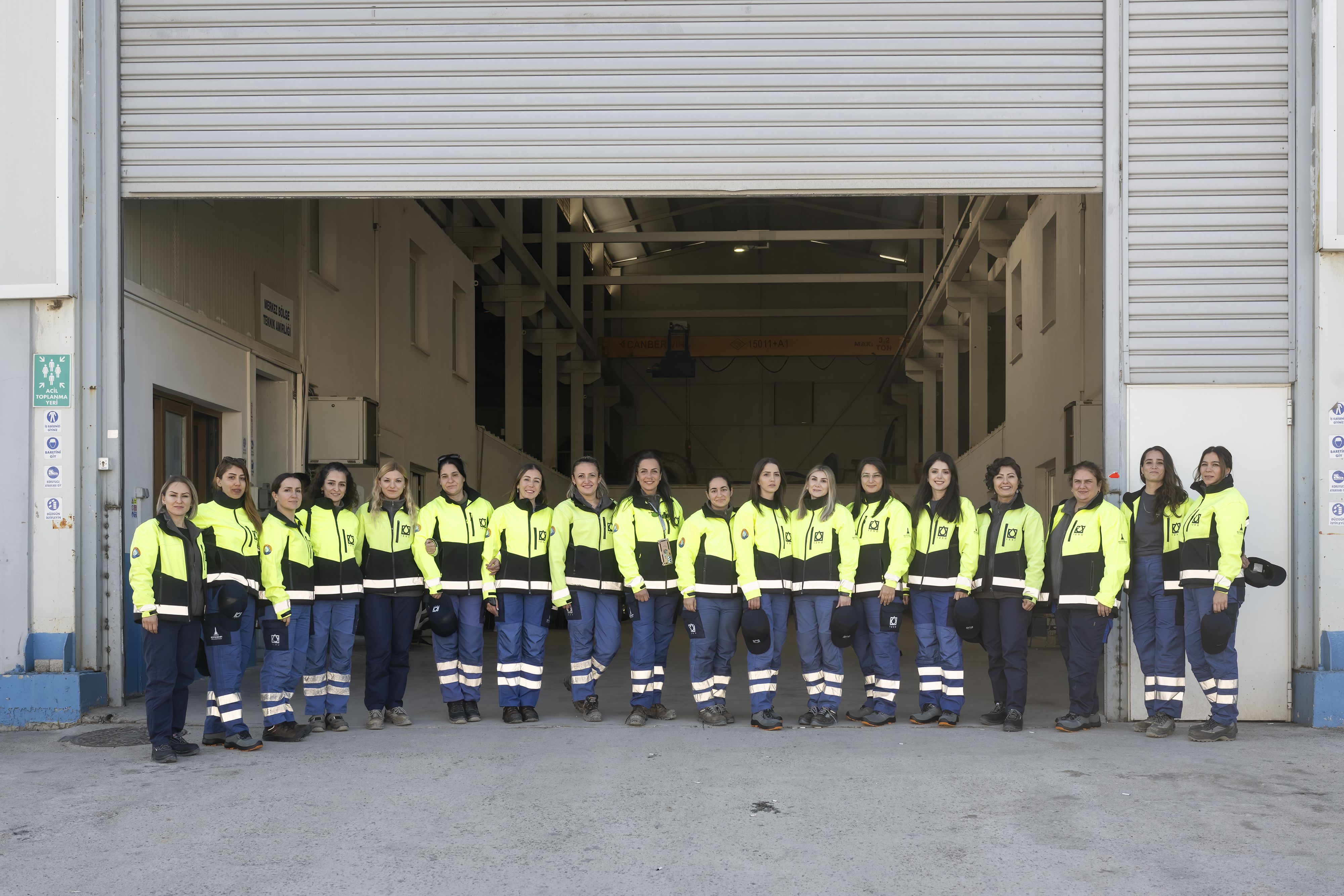
On a crisp spring day on March 8, International Women’s Day, 2022, 30 women in brand new fluorescent jackets, dark trousers, work boots and hard hats walked through the chain link gates of the Izmir Water and Sewerage Administration (IZSU) heavy equipment site to start a new chapter in their lives.
Hired into roles traditionally viewed as male-dominated, the group is the first batch of a longer-term goal to hire 300 women into similar positions by 2025. Alongside gender equality training for all IZSU staff, these new hires have, for Nalan Akıner, finance manager at IZSU, resulted in a “corporate wide mindset change, where women are now more confident across the organization.”
Gender equality in Türkiye
Though Türkiye has shown progress on gender equality, statistics still reflect the tough reality for women in the country. According to the 2023 Gender Gap Index of the World Economic Forum, Türkiye is ranked as the 129th country out of 146 countries for gender parity. In 2022, the labor force participation rate was estimated at just 35.1 percent for women.
Despite these challenges, Izmir has always stood out as a women’s city. The municipality was named after the Amazons, female warriors who fought in the battle of Troy and were known for being as skilled and courageous as men in physical agility, strength, archery, riding skills, and the arts of combat. For Tunç Soyer, the Mayor of Izmir, empowering women remains an important part of the culture of the city, noting that “the city has a future if women have power.”
The IZSU women had been hired as the first step in the company’s Social Gender Equality Plan. The plan was developed as part of IFC’s first sustainability-linked loan with gender key performance indicators and targets, in the infrastructure space globally. A sustainability-linked loan is one which incentivizes the achievement of material and ambitious environmental or social targets. Under the sustainability-linked structure, if IZSU hires at least 300 female contracted employees by December 2025 into jobs where women are currently under-represented, IZSU will receive a slight decrease in the all-in interest rate paid on the IFC loan.
This program is part of IFC’s broader commitment to gender equality and economic inclusion, under which, in FY23, IFC made a record $9 billion in total investment commitments for projects with a gender lens component.
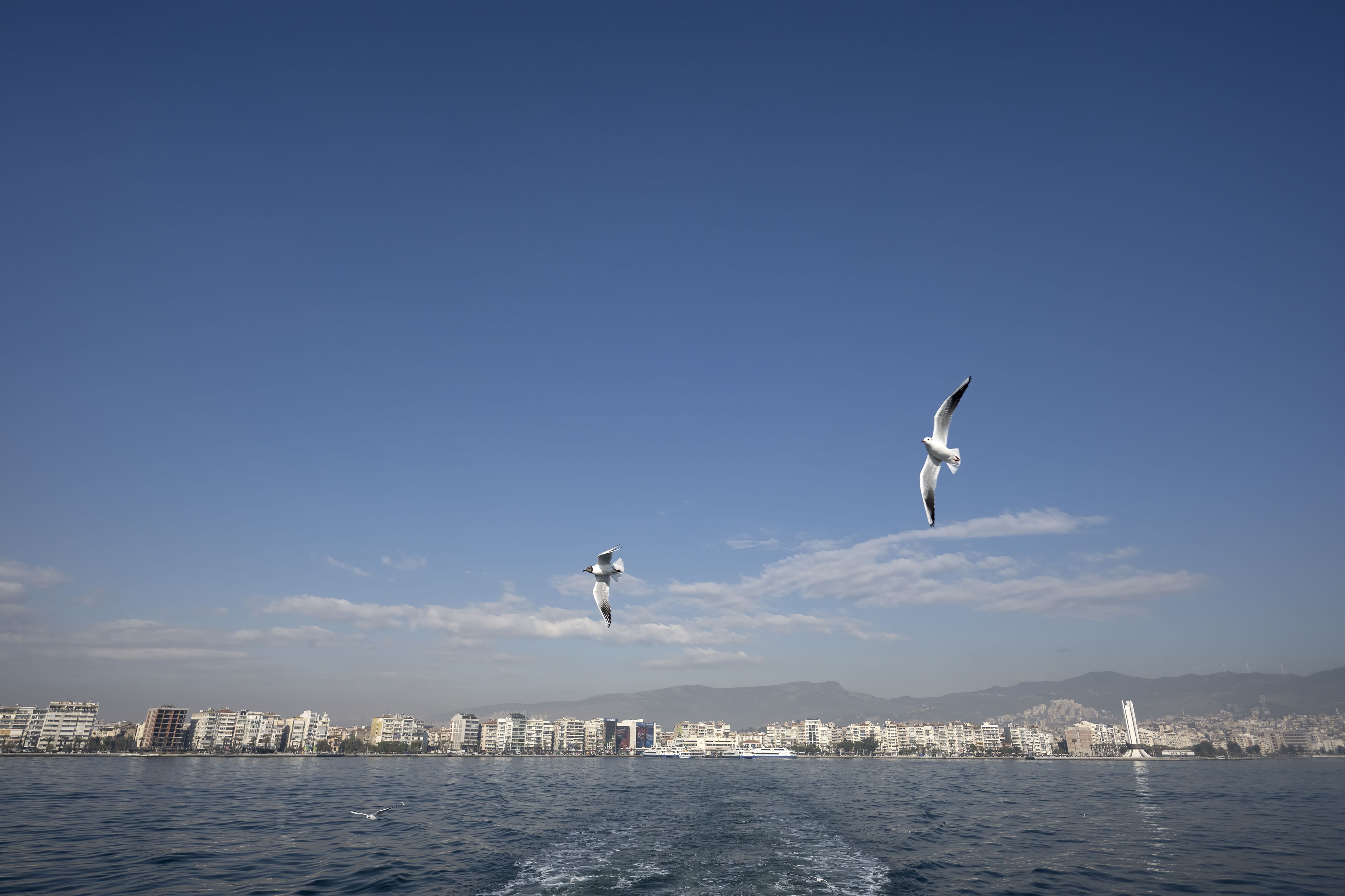
For the employees of IZSU, the implementation of the Social Gender Equality Action Plan has created significant impact. Here, five share their experiences.
Gülden Kodalak
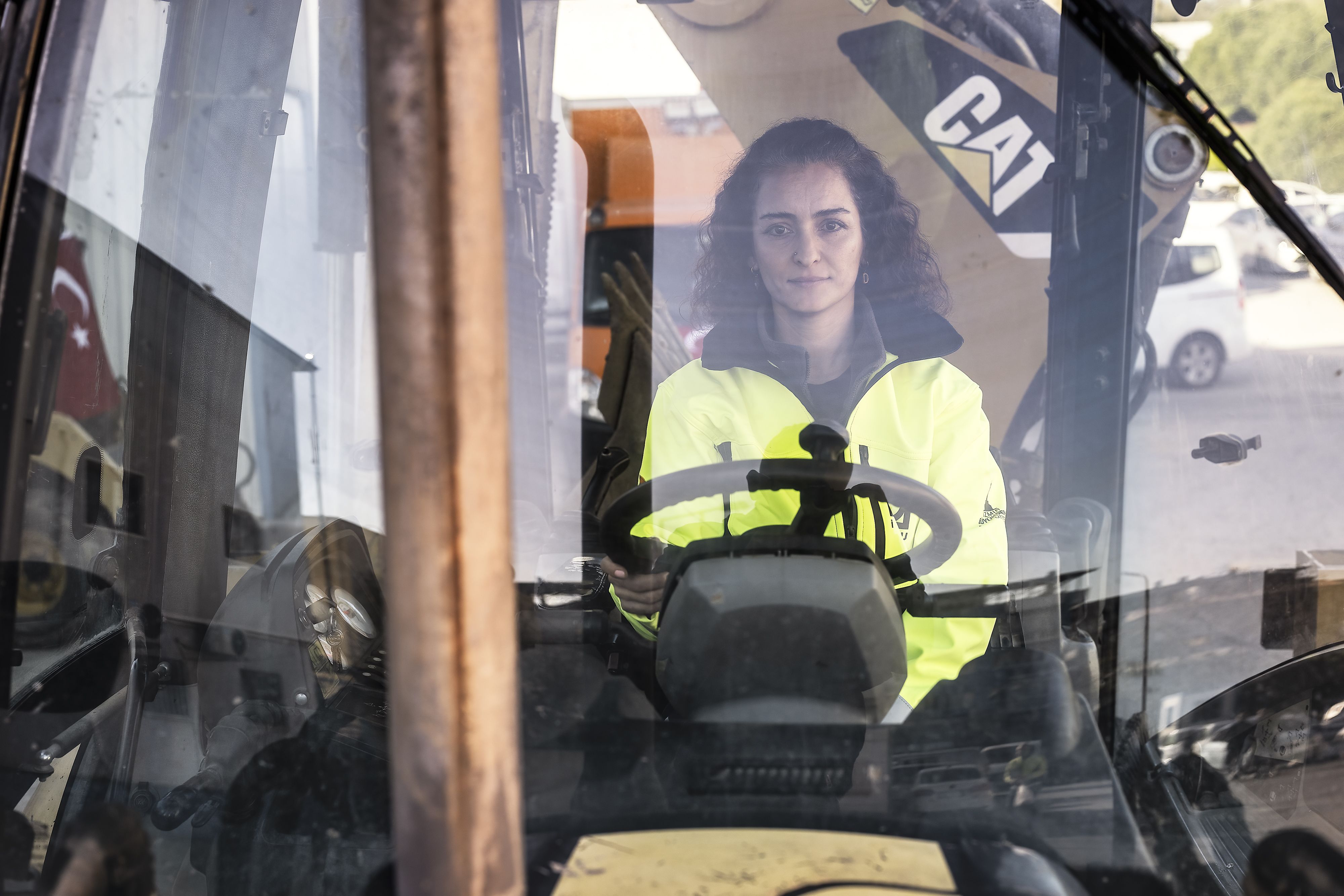
Gülden Kodalak, an excavator operator for IZSU, was let go from her previous role in the branding industry after she became pregnant. As a married woman with a child, she struggled to find employment and was jobless for over five years before the IZSU opportunity materialized. For Gülden, the impact has changed her life, and that of her child;
“This job has enabled me to become financially independent and raise my son without outside assistance.”
She is also proud of breaking the mold of which kind of jobs women can do, noting that “it is important to show Türkiye and the world that women can do what men can do,” something her new role and the IZSU program allows her to demonstrate to both her family and community.
Sitem Banedir
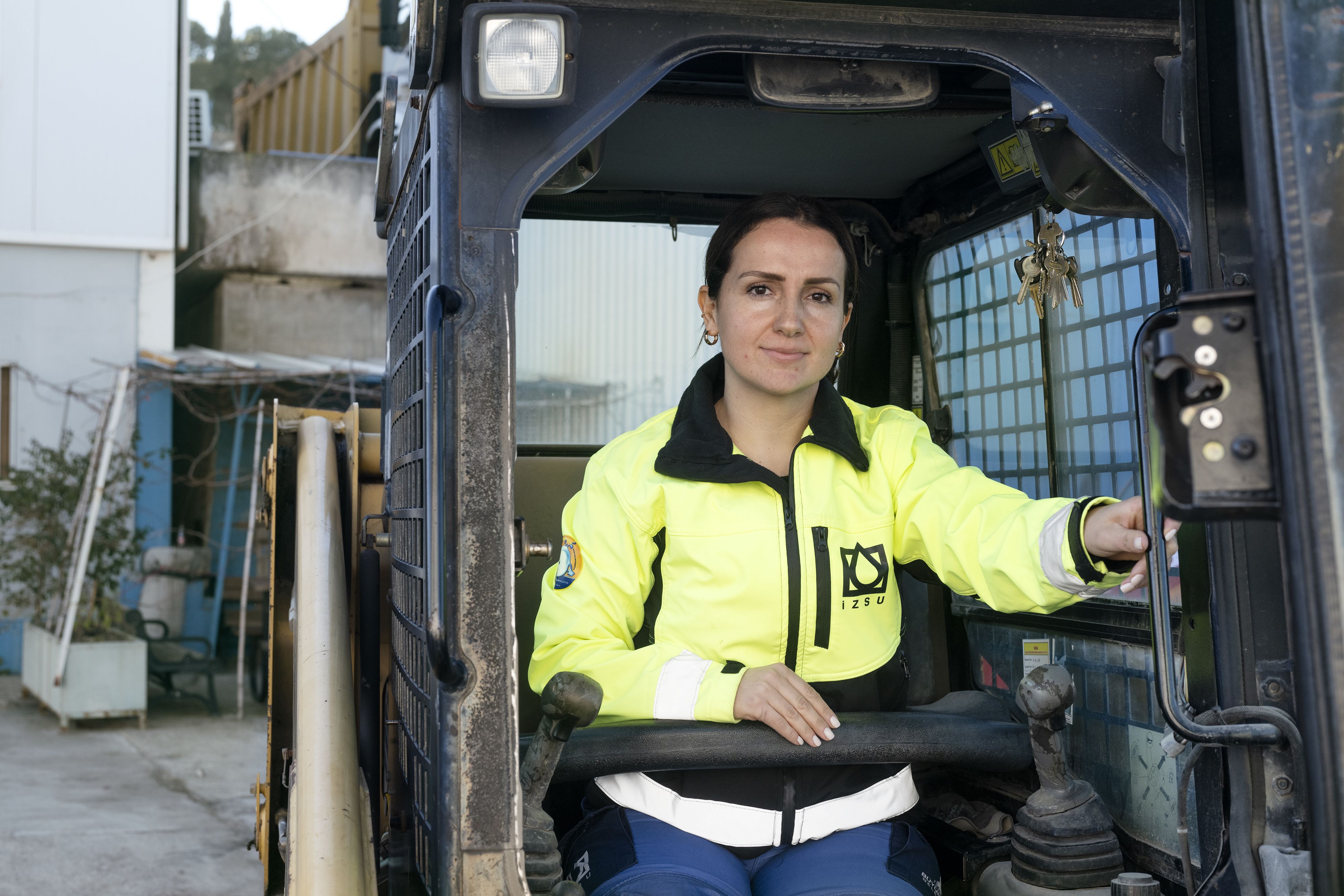
For Sitem Banedir, a backhoe lead and Bobcat operator for IZSU, who had been looking for a job for some time, being hired under the Action Plan is significant.
“I feel proud to have this role, especially being a woman in Türkiye, to be able to stand on my own two feet. I now have the economic freedom to financially support my daughter's education.”
Having faced prejudice and harassment in previous workplaces, working in this program is liberating, because “I now feel that I have no limitations, I am capable, self-sufficient, confident and can do any job.” Confronting the stereotypes around what work she, as a woman, could do was another challenge for Banedir, but not anymore. “At first the children at my daughter's school didn’t believe that I was doing this job. Now they think that I am a Supermom,” she said.
Aylin Kaleli
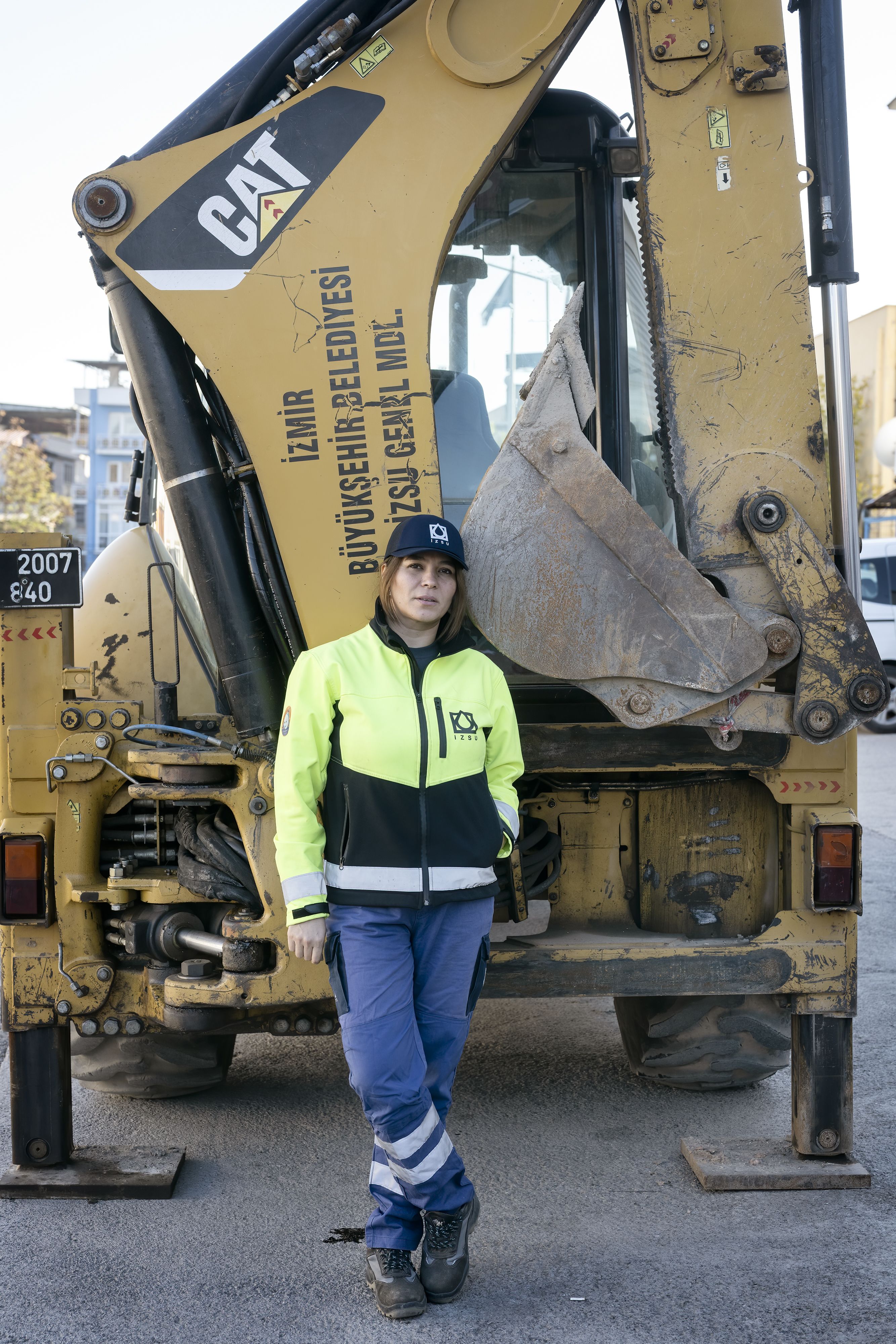
Aylin Kaleli, an accountant by training, faced challenges in the workplace throughout her career. “It can be hard to be a working woman in Türkiye, there are often stereotypes around which jobs women are best suited for.”
Thankfully this has changed at IZSU, where she works as a machine operator. “Now, I feel supported by my colleagues, by management and across the board.” Kaleli has also spread the impact of her new career beyond the walls of the heavy machinery plant.
“The stability and responsibility provided in this role has allowed me to set an example to the people around me. I can be a role model to the next generation.”
Pelin Tasdivar
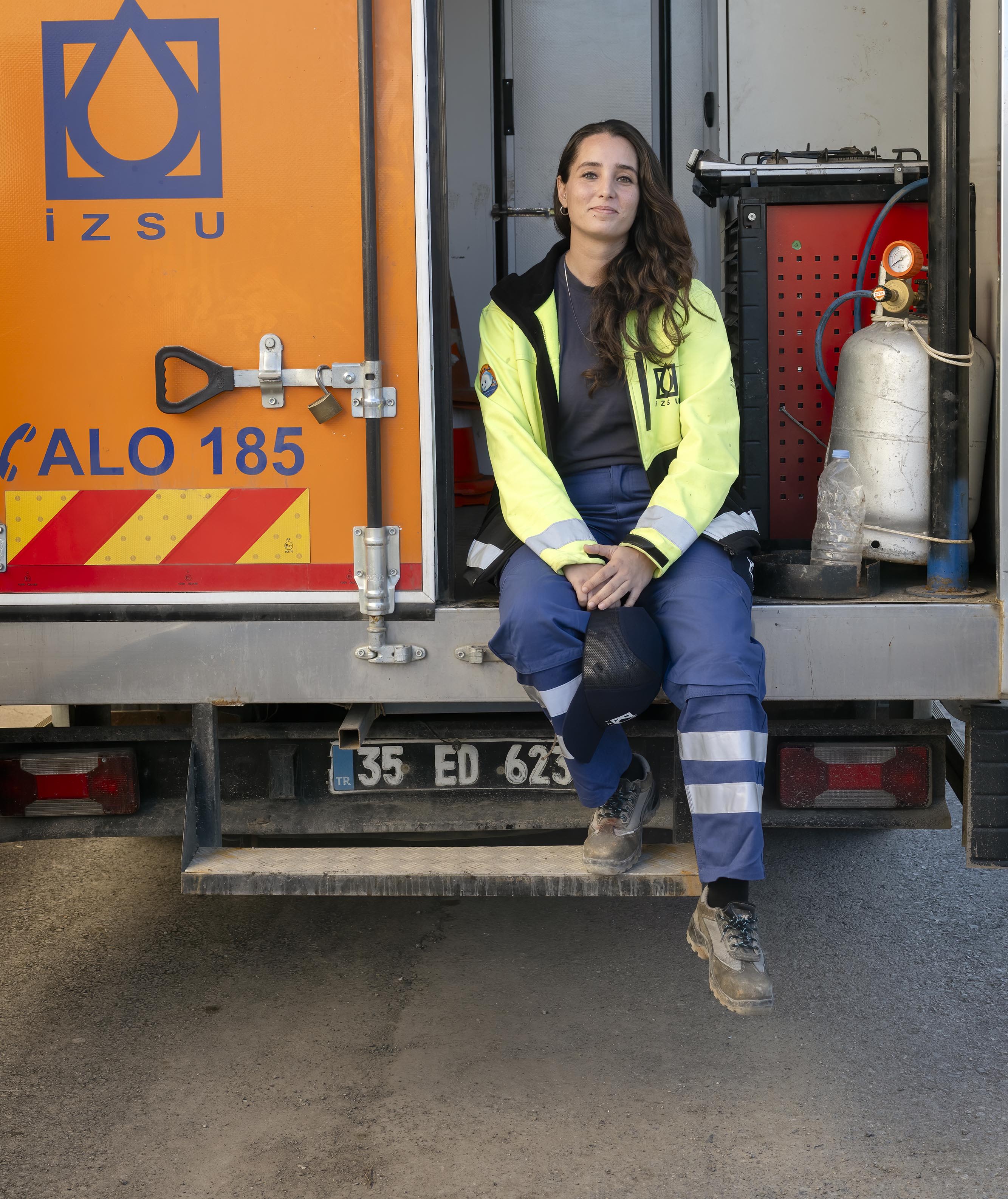
For Pelin Tasdivar, a heavy equipment truck driver at IZSU, things changed during the COVID-19 pandemic. After losing her job in education during the pandemic, she was unemployed for over two years, found limited employment opportunities, and was considering moving to another city to boost her employment prospects. This changed when she saw an advertisement for the training program with IZSU on Instagram.
Despite applying, meeting the requirements, and passing an assessment day, Tasdivar did not hold out much hope for a position that she saw as a golden opportunity. One month later her trepidation proved to be unfounded as, “I got the call that I had been selected, my mum and I were crying tears of joy in our kitchen.”
Nalan Akıner
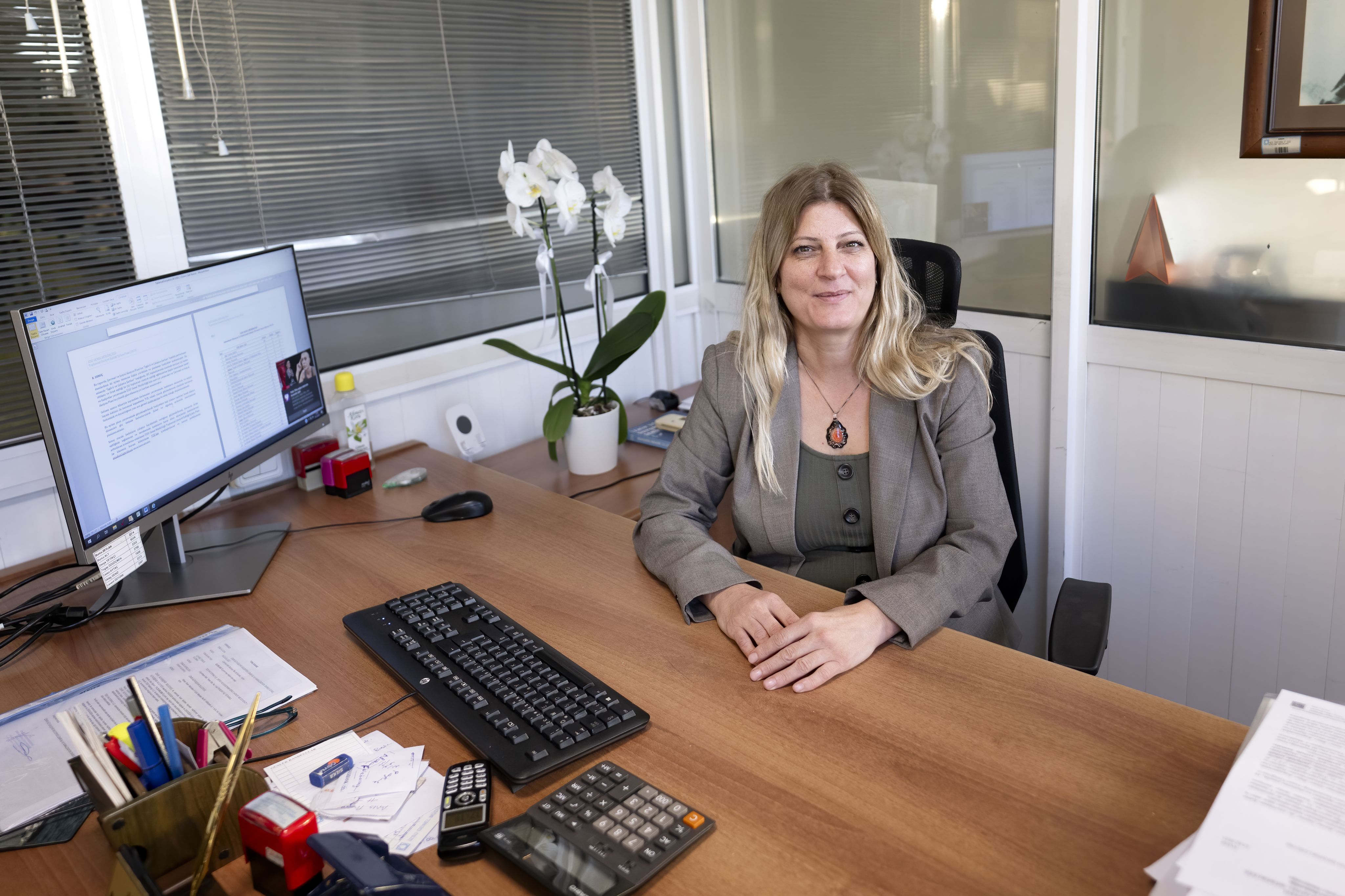
For Nalan Akıner, finance manager at IZSU, the impact of the Social Gender Equality Program has reverberated far beyond the fences of the heavy equipment site. “There has been a perception change across the organization, women are being treated with more respect and I have observed the self-confidence of our female employees increase significantly, as a direct result of this program” she said.
Like the Amazons before them, the women of IZSU are helping to redefine gender roles and what women are capable of.
“Where there used to be uncertainty, now there is courage”
Published in March 2024